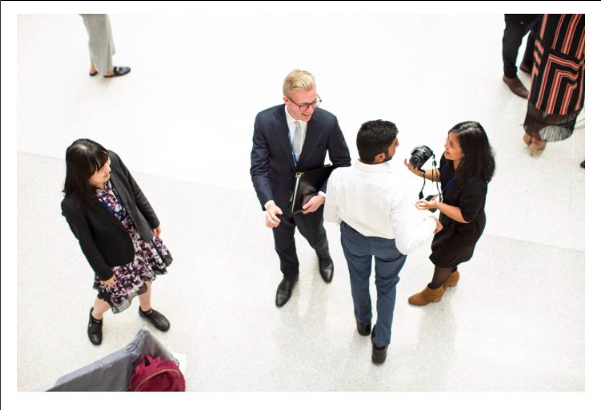This week, our first ever SustainUS World Bank Delegation took the goals we had developed at the start of the Annual Meetings and created a specific demands sheet for the World Bank. This two-sided page was hand-delivered by the Townhall moderator to Dr. Jim Yong Kim (World Bank Group President) and Madame Christine Lagarde (Managing Director of the International Monetary Fund). Here is what we demanded:
Delegation of U.S. Youth: Calling for the World Bank to end both fossil fuel investment by 2020 & indigenous non-consent
SustainUS is a youth-led organization advancing justice and sustainability by empowering young people to engage in advocacy. Our organization has advocated for more just and sustainable policies at the world’s most influential institutions, international spaces, and conferences, including World Economic Forum, the United Nations, the UNFCCC, and the COP. Failing to end fossil fuel investment and the exploitation of indigenous communities will result in the destruction of entire communities, cultures, and climate.
The World Bank (WB) has committed to take climate change into account for all of its future investments, yet has lent $5 billion over the last decade for coal and other fossil fuel initiatives in Southeast Asia, South America, Africa, and the Middle East. These investments threaten climate change efforts, indigenous livelihoods and sacred sites, and the life-sustianing natural world. As members of the generation that will inherit the present system of exploitation, we have an urgent need to correct this destructive paradigm.
What changes must happen for the World Bank to sincerely commit to “end extreme poverty and promote shared prosperity in a sustainable way”?
In order for the WB to fulfill its mission, it must be inclusive in how it addresses climate impacts, energy poverty, and nonconsensual projects; therefore, we, the SustainUS 2017 WB Delegation demand that the World Bank:
1. Expand Civil Society space. It is absolutely critical to make space through advisory council or representatives for the voices of those directly impacted by WB decision-making: youth, indigenous nations, refugees, and people with disabilities.
2. Make the dramatic shift to 100% renewable investment that reflects the urgency of recent climatic events. Slow transitions are tantamount to non-committtals to the populations the WB is designed to assist if WB does not commit to a 1.5C degree future. This means immediate divestment from energy projects that contribute to climate instability, energy poverty, and population displacement.
3. Evaluate and eradicates the WB’s paternalistic structure. The most successful and enduring projects are those that are owned by communities and which validate traditional and local knowledge. Committing to and prioritizing the needs of the people through Civil Society spaces as well as consultation will deliver positive impacts that resolve issues identified by the communities in question.
4. Create a shift in the operating paradigm by prioritizing cultural loss and mitigation of related damages by developing a mechanism for consent, not merely consultation. The WB must use a framework for evaluating project impact that is based on equality and reciprocity. When sovereign indigenous communities impacted by projects are consulted but do not give consent, the WB effectively breaches its political prohibition by siding with colonial oppressors. Sustainable development requires a framework devised to include qualitative elements such as cultural customs, rituals, and priorities. Not creating a shift in the development paradigm further exacerbates systemic injustice and irreversible loss of identity.
1. Michael Berger 9. Aisha Jamali
2. J.I. Cruz 10. Cassidy Jones
3. Naveen Dasari 11. Yaira Matos
4. Kayla DeVault 12. Brian McDermott
5. Greg Eicchorn 13. Gloria Oladipo
6. Ingmar Empson 14. Qomaruliati Setiawati
7. Brian Gómez 15. Ali Shahbaz
8. Julia Grifferty 16. Joyce Zhou
For further consultation, contact info@sustainus.org.


